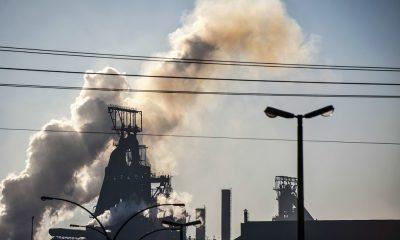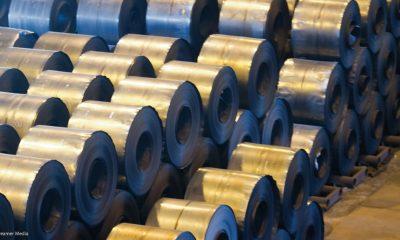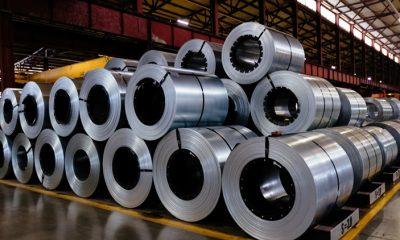Business
ArcelorMittal Defends Trade Protectionism Amid Steel Industry Challenges

ArcelorMittal South Africa (Amsa), Africa’s largest steel producer, has reiterated its stance in favor of trade protectionism to safeguard the local steel industry. Amid rising calls to remove tariffs, Amsa asserts that import duties are vital to preserving South Africa’s manufacturing capacity, jobs, and economic stability.
This defense comes as criticism mounts over the government’s protectionist policies, particularly their impact on economic growth and job creation.
The Case for Protectionism
Tami Didiza, Amsa’s group manager for stakeholder management and communications, emphasizes the importance of localization and domestic supply. According to Didiza, South Africa must decide between bolstering its local industrial capacity or ceding the market to cheaper imports from countries like China.
“The surge in steel imports, especially from overcapacity regions like Asia, has caused significant strain on local producers, risking job losses and financial instability,” said Didiza.
Amsa highlights that:
- Approximately 30% of South Africa’s steel consumption—equivalent to 1.3 million tons—is imported.
- More than half of these imports could be produced locally, presenting an untapped economic opportunity.
Didiza also pointed out the need for better customs enforcement, particularly against underdeclared or missing imports, and the immediate implementation of a CO2 tax on imported goods to ensure fair competition.
A Shift Toward Localization
Didiza argues that South Africa’s customs duty agreements under the General Agreement on Tariffs and Trade (GATT) have been historically detrimental to local manufacturing. He noted that the global move from low-tariff regimes to protectionism offers South Africa a chance to rebuild its industrial base.
The COVID-19 pandemic exposed vulnerabilities in global supply chains, reinforcing the importance of localization. This approach aligns with South Africa’s broader goals of re-industrialization, as highlighted by the Centre for Development and Enterprise’s Ann Bernstein.
The Critics’ Perspective
Donald MacKay, founder of XA Global Trade Advisors, remains critical of the government’s protectionist measures. MacKay argues that such policies, especially in the scrap metal industry, cost the economy approximately R8.5 billion annually without yielding significant job creation.
He advocates for a review of South Africa’s industrial policy to stimulate economic growth rather than relying on tariffs to shield local industries.
ArcelorMittal acknowledges the need to modernize South Africa’s industrial strategy while supporting industries that depend on locally supplied steel, such as fabrication, automotive, agriculture, and mining. Didiza believes this balanced approach will promote:
- Industrial growth
- Job creation and retention
- Economic recovery
As South Africa navigates the complexities of industrial policy, the debate over trade protectionism in the steel sector remains pivotal. ArcelorMittal’s call for increased localization and industrial support highlights the challenges and opportunities within the sector.
Whether through tariffs or other supportive measures, striking a balance between fostering local capacity and enabling economic growth will be crucial for South Africa’s future.
Follow Joburg ETC on Facebook, Twitter , TikTok and Instagram
For more News in Johannesburg, visit joburgetc.com



























